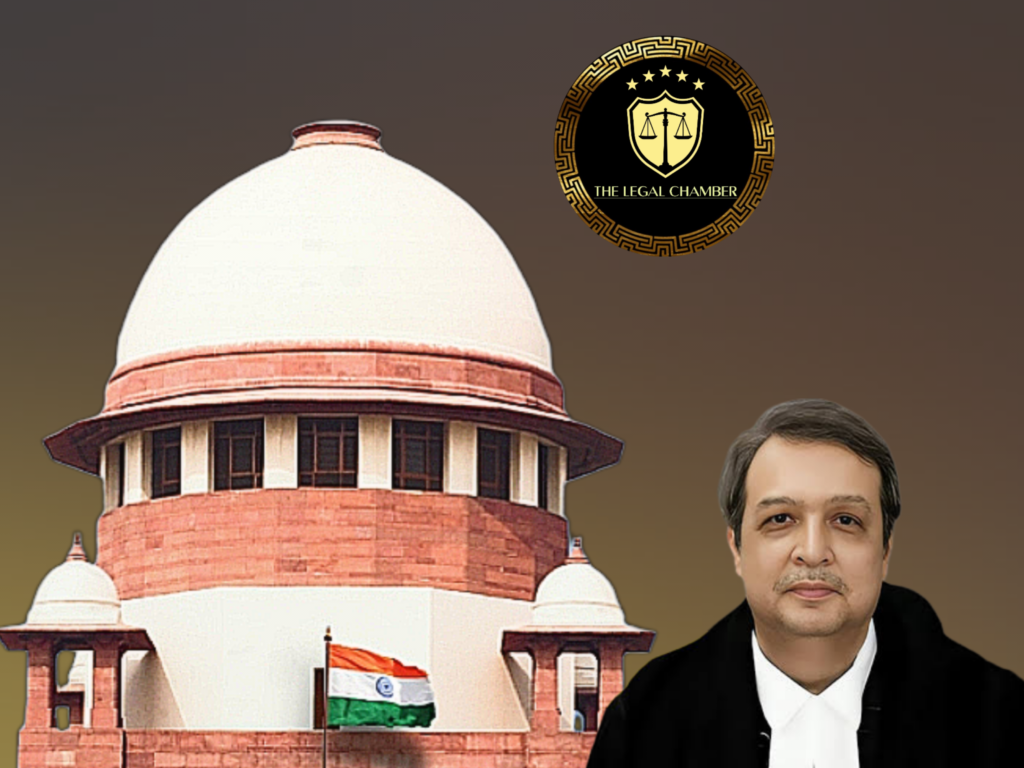The Supreme Court held that an arbitral tribunal has the authority to implead non-signatories to an arbitration agreement under the Group of Companies doctrine. It affirmed that such power is not confined to referral courts under Section 11 of the Arbitration and Conciliation Act, 1996, upholding the tribunal’s jurisdiction.
Facts Of The Case:
The case arises from a dispute involving Shapoorji Pallonji and Company Private Limited (SPCPL), which entered into a Works Contract dated 21.11.2016 with ASF Insignia SEZ Pvt. Ltd. (AISPL), part of the ASF Group. The contract was later novated to Black Canyon SEZ Pvt. Ltd. (BCSPL), another ASF Group entity, through a Novation Agreement dated 17.04.2018. A Settlement Agreement was executed in 2020 due to performance issues. BCSPL initiated arbitration proceedings against SPCPL, to which SPCPL filed a counterclaim not only against BCSPL but also against AISPL and ASF Buildtech Pvt. Ltd. (ABPL), alleging that all three were part of the ASF Group functioning as a single economic unit.
SPCPL relied on the Group of Companies doctrine to justify the inclusion of AISPL and ABPL, even though ABPL was not a signatory to the arbitration agreement. AISPL and ABPL challenged their inclusion under Section 16 of the Arbitration and Conciliation Act, arguing lack of consent and contractual privity. The Arbitral Tribunal rejected their objections, holding that their role and conduct warranted adjudication. The Delhi High Court affirmed this view, leading ABPL to appeal to the Supreme Court, which upheld the lower rulings on the tribunal’s authority to implead non-signatories.
Procedural History:
The procedural journey began when Black Canyon SEZ Pvt. Ltd. (BCSPL) initiated arbitration against Shapoorji Pallonji and Company Private Limited (SPCPL) under a Settlement Agreement. SPCPL, in response, filed a counterclaim, impleading ASF Buildtech Pvt. Ltd. (ABPL) and ASF Insignia SEZ Pvt. Ltd. (AISPL), invoking the Group of Companies doctrine. ABPL and AISPL challenged their inclusion as parties before the Arbitral Tribunal by filing Section 16 applications under the Arbitration and Conciliation Act, 1996, arguing that they were non-signatories to the arbitration agreement. The Tribunal dismissed their applications through two separate orders, allowing the proceedings to continue against them.
Dissatisfied, the appellants approached the Delhi High Court under Section 37 and Section 14 of the Act, seeking to overturn the Tribunal’s orders and to terminate the arbitrator’s mandate. The High Court upheld the Tribunal’s findings, holding that impleadment of ABPL and AISPL was proper in light of their conduct and interrelation with BCSPL. Subsequently, ABPL alone challenged the High Court’s decision before the Supreme Court through a Special Leave Petition. The Supreme Court granted leave, examined the legality of impleading non-signatories post-referral, and ultimately affirmed the decisions of both the Tribunal and the High Court.
Court Observation:
The Supreme Court observed that arbitral tribunals possess the authority to implead non-signatories to an arbitration agreement when justified under established legal doctrines, particularly the Group of Companies doctrine. The Court emphasized that the Arbitration and Conciliation Act, 1996, does not expressly bar tribunals from exercising such power post-referral. It clarified that the doctrine permits binding non-signatories if their conduct reflects an intention to be bound by the arbitration agreement, such as through active involvement in contract performance, shared management, and integrated operations within a corporate group.
The Court also noted that the arbitrator’s jurisdiction is not limited solely to signatories identified at the Section 11 referral stage and that tribunals have competence under Section 16 to determine their own jurisdiction, including issues of party impleadment. Rejecting the view that only courts can bind non-signatories, the Court distinguished between exceptional judicial interference and procedural matters that fall within a tribunal’s adjudicatory domain. The Court reaffirmed that piercing the corporate veil or applying the Group of Companies doctrine does not violate the principle of party consent, provided that the facts support a finding of mutual intention or substantial participation. Accordingly, the Tribunal’s decision to implead ABPL and AISPL was upheld as lawful and appropriate.
Final Decision & Judgement:
The Supreme Court dismissed the appeal filed by ASF Buildtech Pvt. Ltd. (ABPL) and upheld the judgment of the Delhi High Court as well as the orders of the Arbitral Tribunal. It affirmed that the impleadment of ABPL and ASF Insignia SEZ Pvt. Ltd. (AISPL), though non-signatories to the arbitration agreement, was valid under the Group of Companies doctrine. The Court held that the Arbitral Tribunal had the jurisdiction to determine its own competence under Section 16 of the Arbitration and Conciliation Act, 1996, including the authority to join non-signatories when their conduct and involvement indicated a shared intention to be bound by the arbitration clause.
It found no procedural irregularity in the issuance of notices or in the treatment of SPCPL’s counterclaim. The Court rejected ABPL’s arguments that its status as a holding company alone was insufficient for impleadment, emphasizing instead the overall integrated functioning of the ASF Group. Concluding that there was no legal error or jurisdictional overreach by the Tribunal or the High Court, the Supreme Court confirmed the continuity of arbitral proceedings with ABPL and AISPL as party respondents and ordered the matter to proceed accordingly before the Sole Arbitrator.
Case Details:
Case Title: ASF Buildtech Private Limited vs Shapoorji Pallonji and Company Private Limited
Citation: 2025 INSC 616
Civil/Criminal Appeal No.: Civil Appeal No. 5823 of 2025
Date of Judgment: 2/05/2025
Judge(s)/Justice Name: Hon’ble Mr. Justice J.B. Pardiwala
Download The Judgement Here
